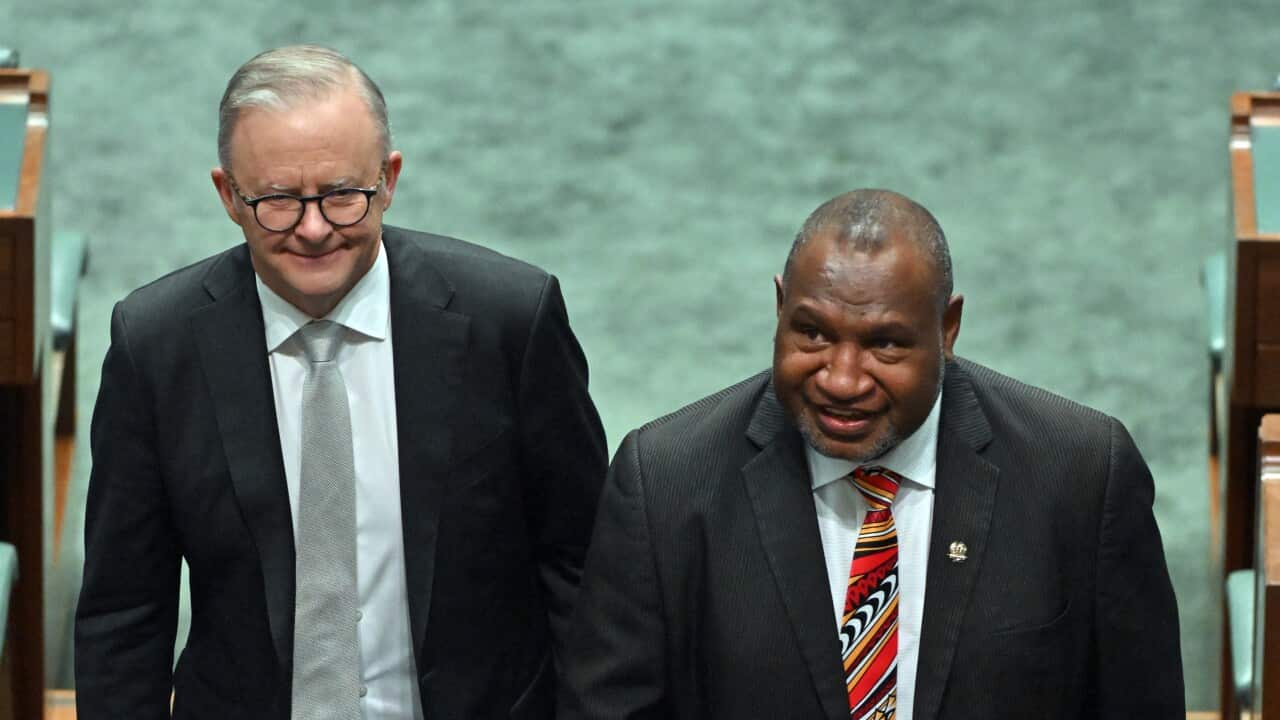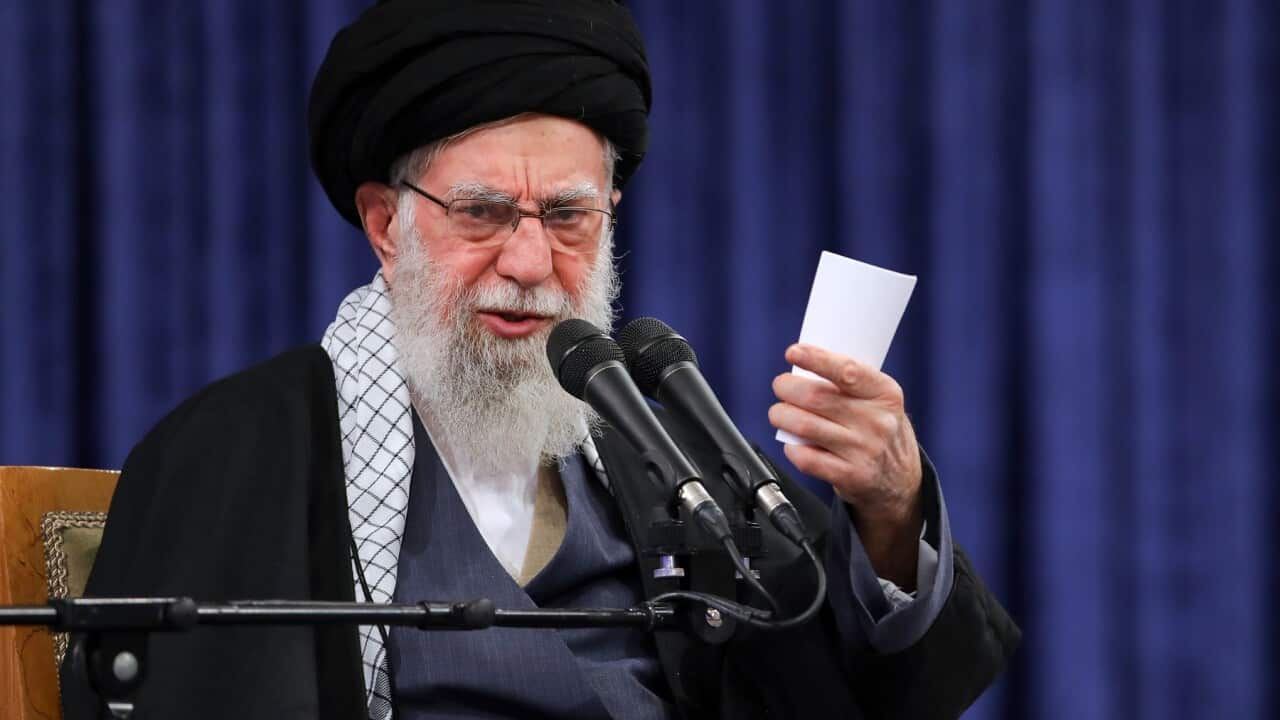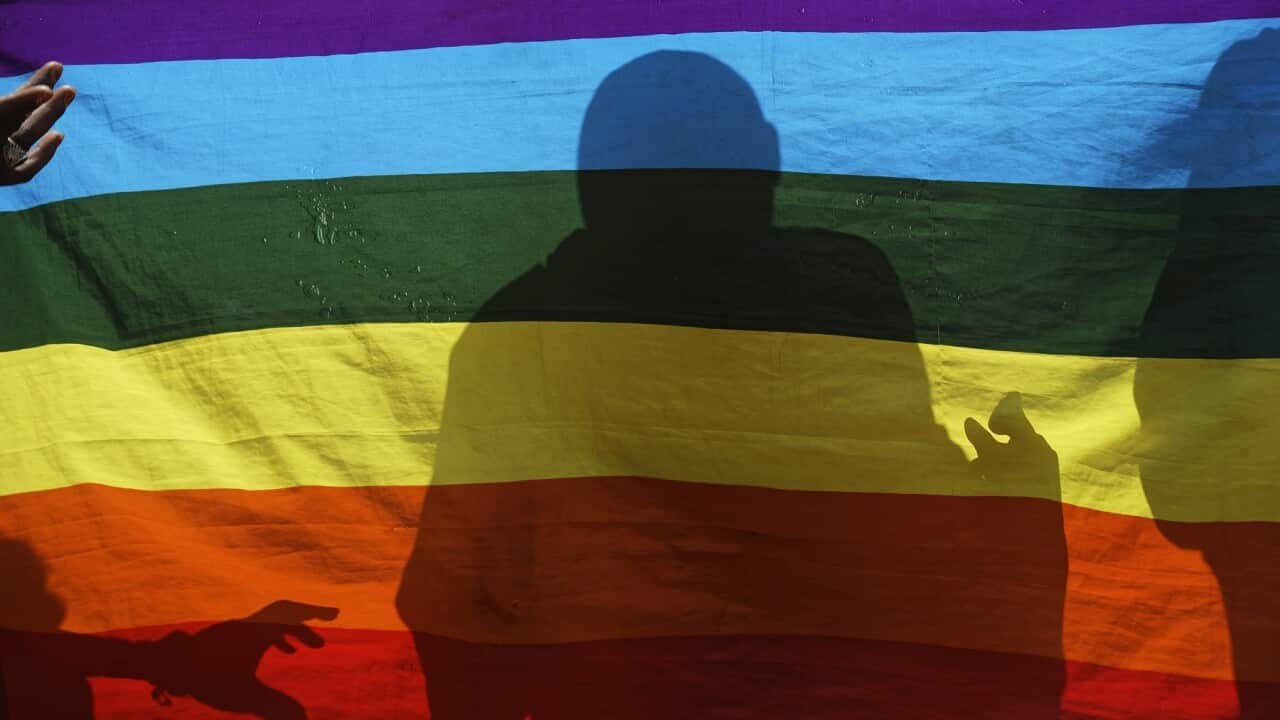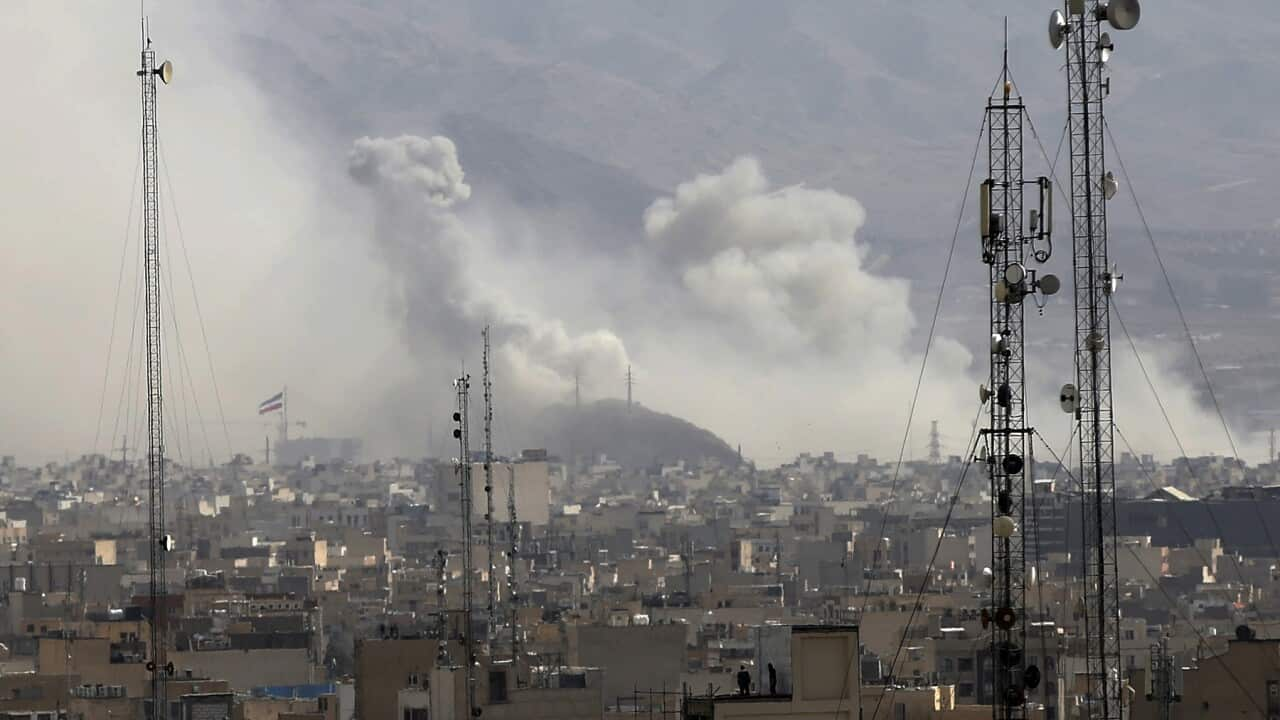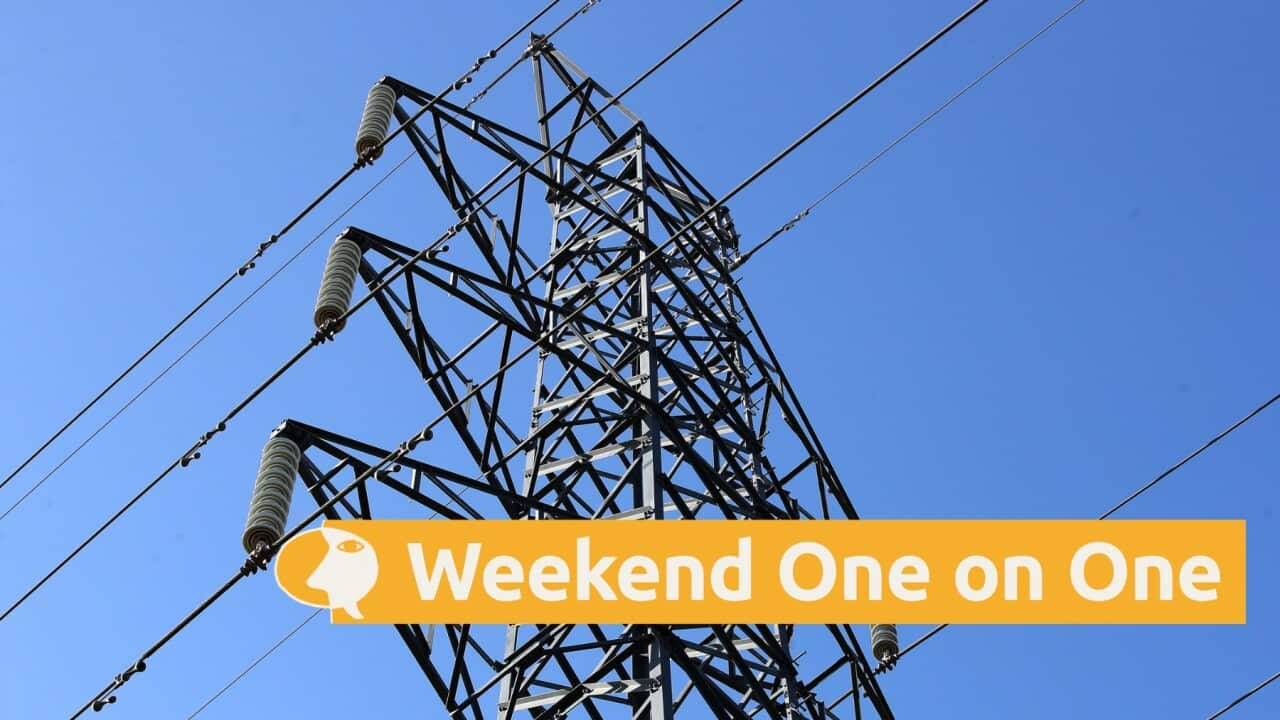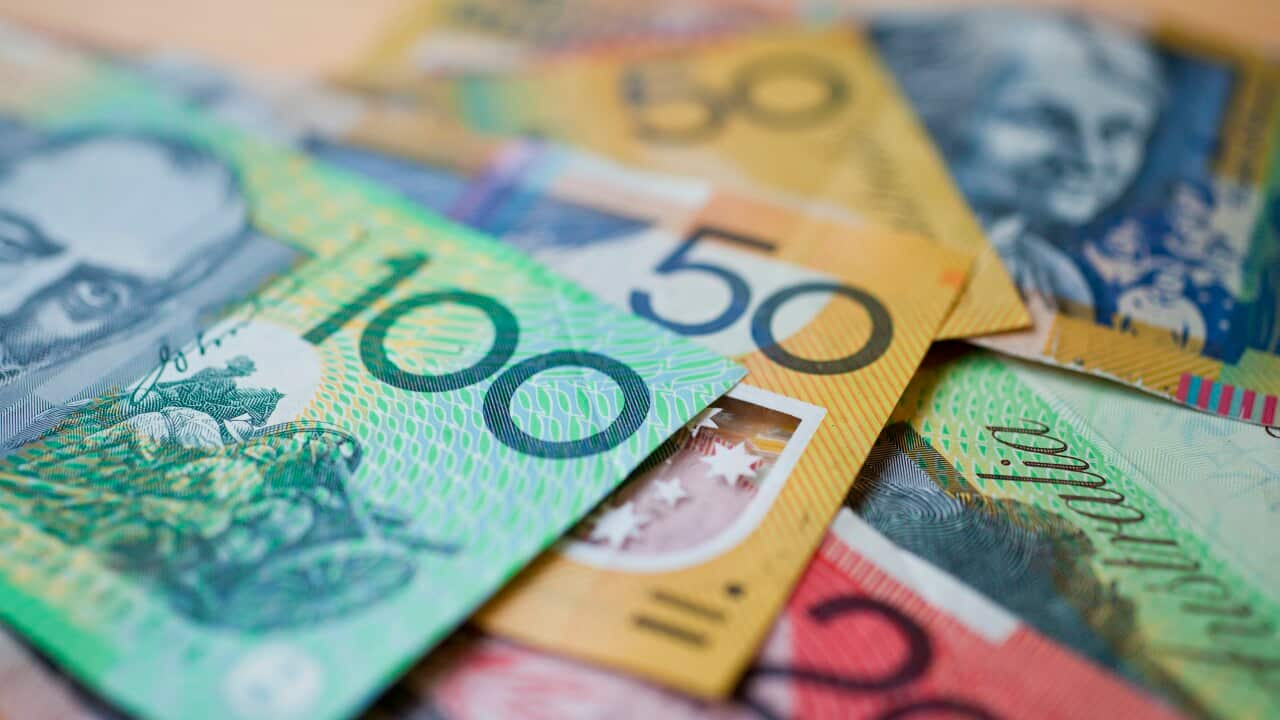Listen to Australian and world news, and follow trending topics with SBS News Podcasts.
TRANSCRIPT
Fifty years ago, on the 16th of September 1975, at a ceremony in Port Moresby, the Australian flag was lowered for the last time and replaced by Papua New Guinea's flag.
Attending was the then-Prince Charles, Australian Prime Minister Gough Whitlam, and the country's first Prime Minister - Michael Somare.
With this, Papua New Guinea declared independence from Australia, who had administered the territory since 1946.
It had earlier been ruled by colonial powers as British Papua in the south, and German New Guinea in the North.
Father Paul Sireh, a Catholic Carmelite Priest in Melbourne, was a child on Papua New Guinea's Manus Island at the time of independence.
"I was in Grade One when we had our independence night in 1975, the 16th of September. As a little kid, we participated, with a dance and all that, and it was wonderful."
Throughout this week he will be celebrating the anniversary at events in Melbourne - several others are taking place around Australia.
Taita Viri-Dabiro came to Australia in 1993 and believes P-N-G has much to be proud of.
"It's our rich culture, our traditions, our diverse many languages. We have 700 plus languages. So that's how rich and diverse our languages are. Obviously our incredible food - which is a lot of carbs! Then, as you know, our abundant natural resources, and with that comes without the strength and resilience of our people. So, when I think of 50 years, that's what comes to mind."
Reaching unity in a region with so many different languages, inaccessible mountainous terrain and a mostly rural population was indeed a major achievement, as Deakin University historian Dr Jonathan Richie explains.
"During the three years or so prior to PNG becoming independent, there was massive consultation exercise. People going out into the highlands at islands, villages everywhere, asking people what should go in. And there were a whole lot of questions, really quite detailed questions about what should be the correct relationship between different levels of government and what should be the relationship between the judiciary and, and even some much less complex, but really profound questions like, who should be a citizen, a Papua New Guinea, what are the qualifications to be a citizen?"
Fifty years on, the country still faces massive challenges including tribal fighting, lawlessness, corruption and high rates of domestic violence and illiteracy.
But, unlike many former colonies, its democracy has remained relatively stable and free of political coups.
This is something Dr Ritche attributes to important cultural and political movements around building a national story.
"I think it's one of the reasons why Papua Guinea has been constitutionally quite stable for the last 50 years, because there was real effort by the Papua New Guinea leaders, including Michael Somare, but also a group of others, to make sure that the people of Papua New Guinea felt that they owned their independence, and in particular, their constitution, which is now called sometimes called, mama law, the mother law."
Throughout the past fifty years, its relationship with Australia has remained strong.
Close military ties between the countries were forged during World War Two, with the first Papua Infantry Battalion embedded into the Australian Army in 1940.
Beyond supporting Australia's infantry on the Kokoda Trail, PNG's soldiers also fought - and died - alongside Australian forces fighting the Japanese since 1942.
Dr Ritchie again.
"So I suppose the relationship that Australia and PNG have on a military side does go back to that sense of shared ordeal, shared bravery, shared courage, shared humour, all the ways, all through that shared ordeal."
That relationship is being further cemented with the signing of a defence pact between Australian Prime Minister Anthony Albanese and his counterpart James Marape during independence anniversary celebrations in Port Moresby.
Mr Albanese told the ABC, it will significantly elevate the defence partnership between the two countries.
"It's an upgrade in our security relationship to a treaty level, to the sort of level that we have with the United States and our important allies."
The deal will also allow citizens of PNG to serve in Australia's military in return for a pathway to citizenship here.
For Father Paul, Australia has played an important role in Papua New Guinea's history.
"And the good thing about us Papua New Guineans getting our independence, is we didn't fight for it. There was no bloodshed. When we lowered the Australian flag, we didn't tear it. We (did it) with respect and appreciated what Australians have done. So I think that's one of the things Papua New Guineans are proud of. That, nonetheless, the ups and downs in our country, we have come this far with pride and success."
